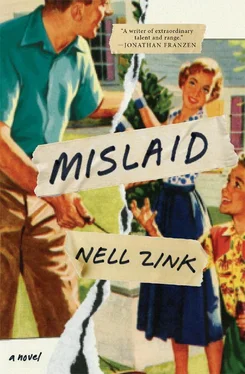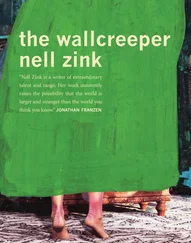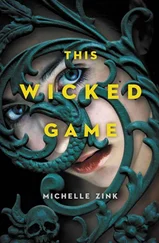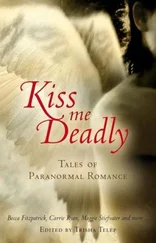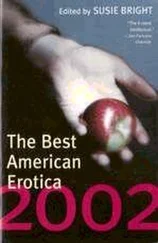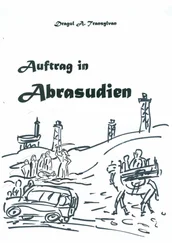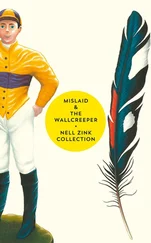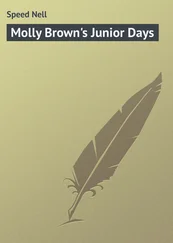Karen objected. “I’m not old, and I have a boyfriend!”
“What’s his name?”
“Temple Moody.”
Lomax looked at Meg with one eyebrow raised. “He Canadian?”
“He’s black like us,” Karen said.
“Y’all black ?”
“So black it’ll blow your mind,” Meg said. “Blackhearted as coal. Versed in the black arts.”
“So you’re a witch, and your boyfriend is a warlock?”
Karen snickered. “Yeah. We got a real voodoo doll made of wax and hair. That’s how Temple could hypnotize ants to join his ant farm.”
“Well, I’ll be doggoned,” Lomax said. “You’re joking, right?”
Meg managed to keep a straight face, and Lomax suddenly felt insecure. He suspected that as an Indian he was supposed to know something about magic and spirits, but his grasp of the world was congruent with the grasp of his two hands. Now at least he had an explanation for Meg’s interest in herbal medicines.
He went back to the van and told his intermittently dozing girlfriend about it as he drove her home to their trailer 120 miles away in the woods near Danville.
“I wish I were a witch, but I’m the wrong generation,” Flea (short for Felicia) said. “Witches are born every seventh generation, and my grandmother was already a witch.”
“You’re saying Poodlehead and her daughter can’t both be witches. But if her boyfriend was a sixth-generation warlock?”
Flea paused to think and said, “You’re so smart.”
“We could both be witches and not know it. Hell, I don’t know what my ancestors were doing seven generations ago.”
“Can you cast a magic spell?”
He sucked on the roach clip smoldering in the ashtray, cleared his throat, and sang, “Hey-a ho-yah ho-yah, hey-a ho-yah ho-yah, ohm anautcha sheila, ohm anautcha rama.”
“Isn’t it Shiva, not Sheila?” Flea asked.
Flea was a dropout, like Meg, with intellectual ambitions that outstripped her resources. But on a smaller scale. Like Lee, she was a sexual outlaw who had left home young. But not to go to boarding school. She had ditched sixth grade to move in with Lomax.
It was no fault of his. She had long legs. Her girlfriends were older, and she pitched her voice low. She wore makeup and tight pants and styled her hair. In a dry county, there are no bartenders to turn away jailbait for a man’s protection. There was only a low stone retaining wall by a river, where everybody went to party. When they met, it was dark. The morning after, he got a surprise.
He saw himself as her protector. As long as she was with him, she wasn’t hanging out at the wall, waiting for whomever. He could make an honest woman of her. He proposed marriage.
Her father said Lomax was a rat. Flea puffed on a cigarette and said he was just jealous. Her parents drank. She could repeat many things that made her seem worldly and mature. There was no privacy in her childhood home. Every conflict was open for all to see, so she knew love was wrapping paper and a battle for supremacy. Her clique of eighth graders taught her feminist pride, as they understood it: it meant knowing how to wait for a better offer. Lomax brought order and stability to her life and allowed her to be a child again. With every day she spent riding around in his van, she became more innocent and ladylike. She never had to beg or flirt. She just asked for what she wanted — a Darvon, say, or Mountain Dew and pork rinds — and he would figure out a fast way to get it. No effort was needed to catch his eye. He was always watching her, more often than he looked in the rearview mirror.
Sometimes he needed her to do difficult things, but here her experiences compared favorably to those of her friends who were thirteen and unattached and still going to the wall. Among her friends his social status was in a class by itself. They called him “the Candy Man” and envied her openly.
Even after she turned twelve, her father refused to consent to her preengagement, so they could not be married. Still she lived as an adult, her lover’s all-round helpmeet. She was older than Byrdie by about six weeks. To look at, she was a leggy, wispy, lovely girl. But almost nobody ever saw her. She was under orders to stay in the van, where she killed time listening to the radio.
Sometimes watching Karen fall asleep at night, Meg suspected her of weaving romantic fairy tales to herself about her father and brother. She might well remember them, or the lake, or her paternal grandparents’ house at Christmas. Every time one of Meg’s stories featured a lost royal child, fairy changeling, or disenfranchised heiress (she especially liked retailing what she remembered of Mistress Masham’s Repose ), she watched Karen’s face closely. There was no glimmer of recognition. But during ugly-duckling-style stories — the kind where someone underappreciated turns out to be a princess, if only by marriage after the story is basically over — Karen would sit up straighter and appear dissatisfied, setting her mouth in a horizontal line. Confronted for the first time with Cinderella, she protested her working conditions and said the midnight rule was unfair.
It disheartened Meg to think that Karen might regard her minimal roster of chores and homework as equivalent to the labors of Cinderella. In reality, it was much stranger than that. The mind of a child! Children have no hearts (cf. Peter Pan, another story Meg could reproduce fairly accurately), and their minds are rickety towers of surreal detritus. Of course Karen remembered Lee and Byrdie. Once there was a house, a boat; once there was a big, mean boy. There were men, wading pools in sunlight, termites, stamp hinges, and coffee-table books of illustrations by Maxfield Parrish. There was a push-button gear shift, high up on a dashboard. There were little white buttons on Lee’s pink shirt where she lay in a haze of Pernod fumes while he slept it off. It was all there. But as memories. Not photographs. Not stories. There were no anecdotes, no mentions of “your brother.” She had no way of connecting the dots.
Her memories were far less vivid than her dreams. Once in a dream she met her father. He lived in a red-and-gold castle on a miniature golf course. He was the monarch King Vitaman. It would have shocked Meg to know how seldom Karen thought about him. Deep down, she didn’t think she needed a father. Maybe at one time she had one, past tense. But she didn’t have one, present tense, and that was plain as day.
The virgin birth had suggested manifold alternatives to her. Karen received no religious instruction from Meg, but as an outcast she spoke frequently with Amber Schmidt. Schmidt told her about the Blessed Virgin Mary and said it could happen to anybody. As a girl you could never be the Second Coming, but you might be His mother.
Garbage in being garbage out, Karen had a vivid nightmare. God came to her in the form of a leatherback sea turtle like one she had seen at a beach house in Duck, North Carolina, when some poets put it in Lee’s bathtub. God’s penis looked like elbow macaroni. She ran across the room to her mother’s bed and yowled, “Mom!” Meg seemed nonplussed, so she improvised: “I had a bad dream mean boys were chasing me on bikes!”
“Come here, darling baby,” Meg said gently. She pulled Karen under the blanket. She stroked her sweaty face and tangled hair and said, “Sleep, my love. I will never let anybody hurt you.” Holding her child in her arms, clueless Meg pondered the opportunity costs of childhood in a world without sidewalks. Having grown up at a school with athletic facilities, she knew how to swim, hit a tennis ball, ride a bicycle, and even — unusual for a rural Virginian — roller-skate. Her poor daughter, always having to choose between the road and the woods.
Читать дальше
Конец ознакомительного отрывка
Купить книгу
